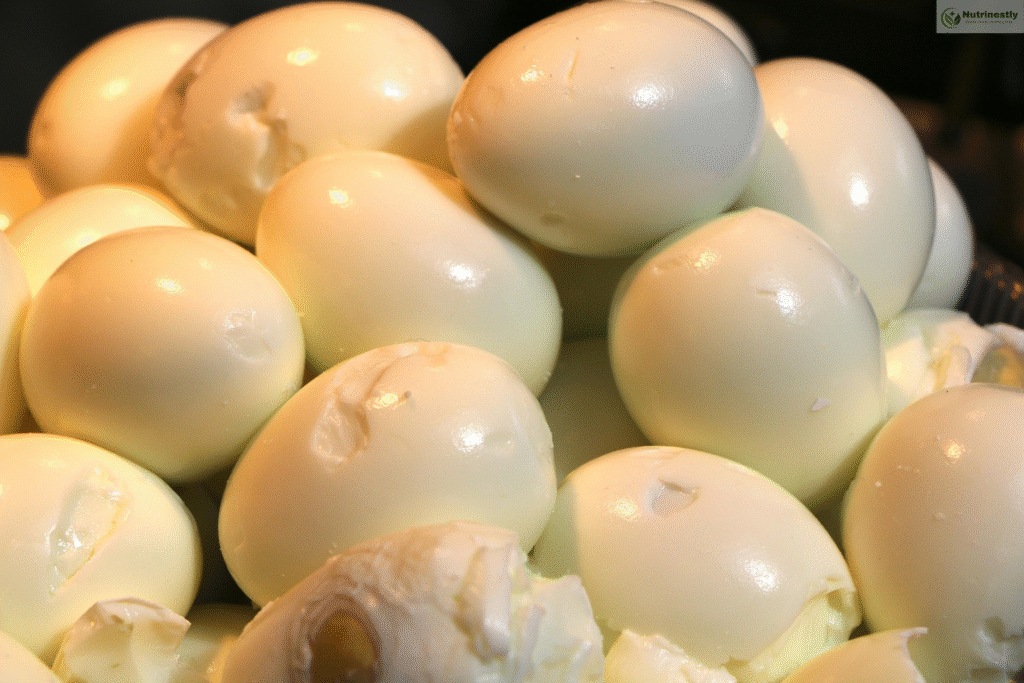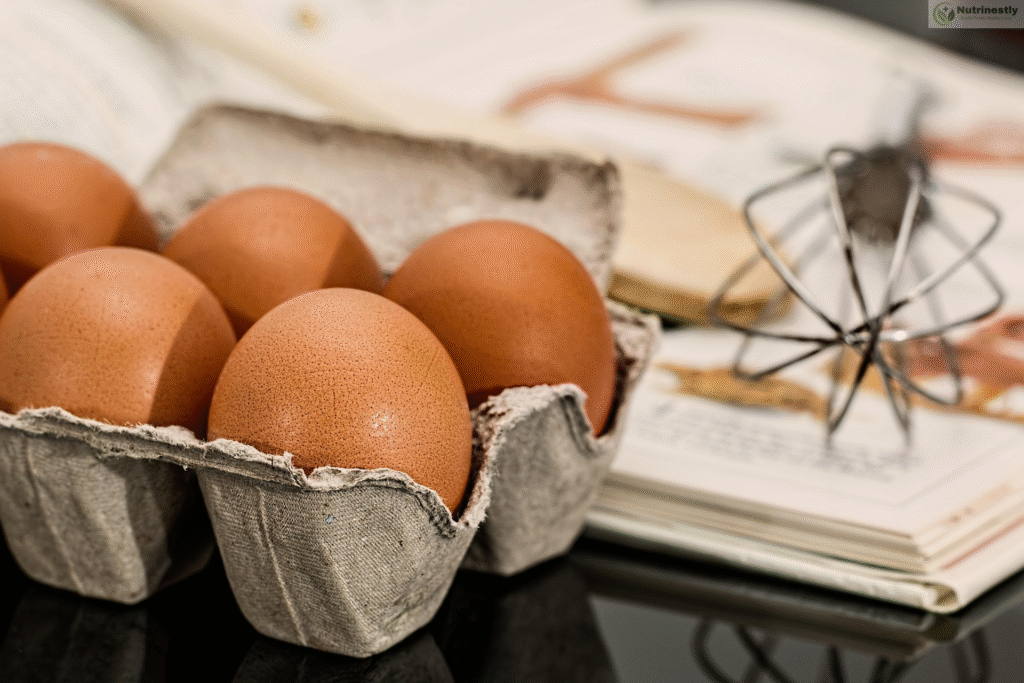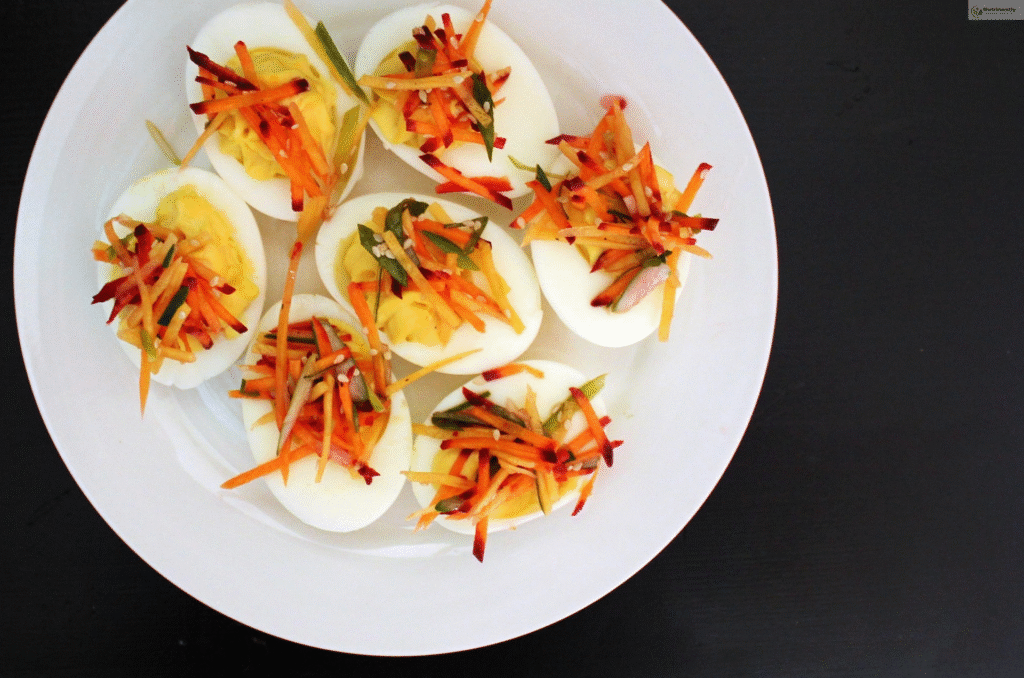
What You Need to Know About Calories in Hard-Boiled Eggs
Few foods are as ubiquitous and divisive as eggs. Need week’s worth of meal prep, post-workout protein boost, or decadent comfort food splurge? Hard-boiled eggs are always the safe bet. So, what are the nutritional calories of a hard-boiled egg that you can rely on, and why are they such a wonderful nutritional snack?
Eggs have been a staple of the diet for centuries, universally praised for their convenience, affordability, and heavenly quantities of nutrients. With so many erroneous claims circulating about their fat and cholesterol content, though, many health-conscious consumers are asking themselves: Are hard-boiled eggs healthy?
The answer is a resounding yes when consumed as part of a balanced diet. Hard-boiled eggs provide high-quality protein, essential vitamins, and healthy fats, all while being relatively low in calories. Unlike fried or scrambled eggs, they require no added oils or butter, making them one of the cleanest and most convenient ways to enjoy eggs.
In this comprehensive guide, we’ll explore:
- Calorie count in hard-boiled eggs (by size and preparation)
- Vitamins, minerals, and antioxidants found in eggs
- Macronutrient make-up (Eggs: protein, fat, and carbohydrates)
- Comparison with poached, scrambled, and fried eggs
- Health advantages (weight management, cardiovascular health, brain function)
- How can they be used in food and snacks
- Busting the myth:
Regardless of whether you count macros, keto, or simply a healthyand speedy snack lover, the information about hard-boiled eggs’ calories and how they will impact your diet will make you a wiser food shopper.
Let’s Get Started!
1. What Are Hard-Boiled Eggs?
Hard-boiled eggs are intact eggs that are put into boiling water in a way that the yolk and white harden. Unlike soft-boiled eggs (runny yolk), hard-boiled eggs consist of a hard yolk, and they are easy to chop, slice, or eat during travels.
A Brief History of Eggs in Human Diets
Eggs have been a constituent of the human diet for more than one thousand years and originated in prehistoric times. Eggs were a guarantee of food for hunters and gatherers and further developed as a part of agricultural civilization because eggs are cheap to store and have a long shelf life.
Hard-boiled eggs are still one of the world’s cheapest and healthiest protein sources even today.
Why are Hard-Boiled Eggs so Popular?
- Ease – No additional oil or ingredients needed.
- Portability – Great to take and go for lunches, hiking, or a post-gym snack.
- Long Shelf Life – Refrigerate for up to a week.
- Versatility – In salads, sandwiches, snacks, and more.
Traditional Uses in Foods & Snacks
- Breakfast: Sliced on toast or with avocado.
- Salads: Part of Cobb, Niçoise, or chef salads.
- Snacks: Consume alone with a pinch of salt and pepper sprinkled on top.
- Meal Prep: Suitable for high-protein, low-carb meals.
2. Calories in Hard-Boiled Eggs
2.1 Caloric Content per Egg Size
The caloric content in a hard-boiled egg is different depending on the size. Here’s the breakdown:
| Egg Size | Calories per Egg |
| Small (38g) | ~54 kcal |
| Medium (44g) | ~63 kcal |
| Large (50g) | 72-78 kcal |
| Extra Large (56g) | ~80 kcal |
| Jumbo (63g) | ~90 kcal |
Key Takeaway:
A single 50g large hard-boiled egg contains approximately 70-80 calories and is a low-calorie, high-protein food.Between sizes, the calorie difference is negligible, with larger eggs containing a bit more fat and protein.
2.2 Macronutrient Composition

Knowing hard-boiled eggs’ macronutrient content makes meal planning easier, particularly for those monitoring protein or fat.
- Protein (6.3g in a large egg)
- Complete Protein: Includes all 9 essential amino acids.
- Muscle Repair & Growth: Aids in repairing muscle after exercise.
- Satiety: Makes you feel fuller longer, assisting with weight control.
- Fats (5.3g per large egg)
- Healthy Fats: Mostly monounsaturated and polyunsaturated fats.
Omega-3s (in pasture eggs): Brain and heart health.
Cholesterol (186mg): Cholesterol from food has little or no impact on blood cholesterol levels in most adults.
Carbohydrates (0.6g per large egg)
Negligible Carbs: Ideal for keto and low-carb diets.
3. Nutrition Profile of Hard-Boiled Eggs
Hard-boiled eggs have more to offer than calories and macros:
Vitamins
- Vitamin A (6% DV) → Eyes and immune system health.
- Vitamin D (5% DV) → Calcium absorption and bone health.
- B Vitamins (Folate, Riboflavin, B12) → Metabolism and energy.
- Choline (147mg) → Liver and brain function.
- Selenium (22% DV) → Antioxidant radical.
- Phosphorus (9% DV) → Protection of bone and teeth.
- Iron (3% DV) → Oxygen in blood.
Antioxidants
- Lutein & Zeaxanthin → Eye protection against blue light and age damage.
4. Hard-Boiled Eggs vs. Other Preparations
Does the way of preparation influence calories and nutrition? Yes!


4.1 Calories Comparison Table
| Cooking Method | Calories per Egg | Protein | Fat | Carbs |
| Hard-Boiled | 70-80 | 6g | 5g | 0.6g |
| Fried (in oil/butter) | 90-100 | 6g | 7g | 0.6g |
| Scrambled (with milk/butter) | 90-100 | 7g | 7g | 1g |
4.2 Why Hard-Boiled is the Healthiest One
✔ Fewest calories (no extra fats used).
✔ The biggest amount of nutrients (minimally lost nutrients via heat).
✔ No oxidation of fat (as compared to frying).
✔ Convenient and meal-prep friendly.
5. Benefits of Nutrition from Hard-Boiled Eggs
- Weight Loss & Suppression of Hunger – Overload of protein turns off hunger hormones.
- Healthy Heart – Increases HDL (good cholesterol)
- Brain Function – Choline improves memory & concentration.
- Eye Health – Lutein safeguards against macular degeneration.
- Muscle Preservation – Suitable for athletes & the elderly.
6. How to Make Hard-Boiled Eggs Part of a Balanced Diet
6.1 Easy Breakfast & Snack Recipes

- Breakfast: Avocado & egg toast.
- Lunch: Chopped in grain bowls or salads.
- Snack: Greek yogurt deviled eggs.
- Dinner: Chop up ramen or stir-fries.
6.2 Portion Control Tips
- 1-2 eggs per meal is best.
- With fiber (veggies and whole grains) for better digestion.
7. Hard-Boiled Eggs on All Diets
- Keto & Low-Carb: Best option (basically no carbs).
- Paleo: Whole, unprocessed protein food.
- Mediterranean: Good with olive oil and veggies.
- Vegetarian (Ovo-vegetarian): Central protein food.
8. Demythology of Eggs
Eggs increase cholesterol.
➡ Fact: For most people, cholesterol in the diet has little effect on blood cholesterol.
Egg whites are healthier than whole eggs.
➡ Truth: Yolks contain all of the vitamins and healthy fats.
9. FAQs
Q1: How long can hard-boiled eggs be stored in the refrigerator?
✔ 1 week (peeled or not in a covered container).
Q2: May one store hard-boiled eggs daily safely?
✔ Not at all! 3 eggs a day is fine for the rest of us, claim studies.
Q3: Are hard-boiled eggs good for weight loss?
✔ Yes! They are high in protein and filling.
10. Conclusion
Hard-boiled eggs are a low-calorie, high-nutrient superfood that can be easily incorporated into nearly any diet. The egg holds between 70-80 calories for the larger egg, and it has good quality protein, vitamins, and healthy fat all the more reason to include them as a healthy addition.
So go ahead and grab the hard-boiled eggs and include them with meals this week as a healthy and delicious addition!

